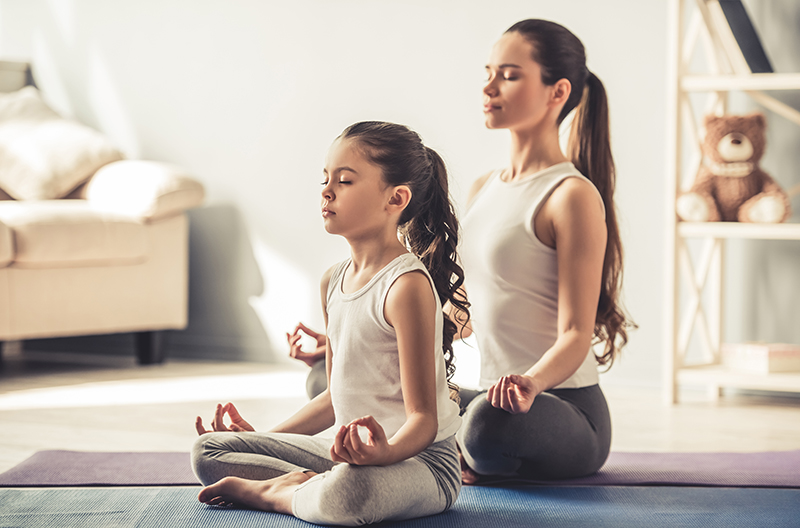
Mindfulness for children and parents
Self-awareness and social awareness are two of the key social and emotional learning skills that children should develop.
Some of the benefits of mindfulness training for children include increased self-awareness, social awareness and self-confidence.
Mindfulness has been shown to improve empathy or the ability to understand what another person is thinking or feeling, which improves children’s awareness of others and helps them to build positive relationships.

What is mindfulness?
Mindfulness is about training yourself to pay attention in a specific way. When a person is mindful, they:
- focus on the present moment
- try not to think about anything that went on in the past or that might be coming up in future
- purposefully concentrate on what’s happening around them
- try not to be judgemental about anything they notice, or label things as ‘good’ or ‘bad’.
Some of the benefits of mindfulness for children
There are many benefits of mindfulness training for children, including:
- increased self-awareness, social awareness, and self-confidence
- increased ability to self-regulate their emotions, especially difficult emotions such as fear and anger, through breathing and other grounding techniques
- building resilience by giving children skills to help them to cope better with stress, as well as engage more fully with themselves and the world.
Mindfulness training has also been shown to reduce the severity of depression, anxiety and ADHD in children.
What parents can do to encourage mindfulness in children
The best thing parents can do to help their children become more mindful is to commit to some regular mindfulness practises themselves!
Research shows that parents and carers who practice being mindful around their children contribute to improving their child’s sense of self-worth and self-esteem. The more present and mindful you are with your children, the more happy, mindful and resilient they will be.
Here are four ways to practice mindfulness with your children:
Mindful Play
Mindful cooking
Mindful dinnertime
Mindful teeth brushing

Smiling Mind – helping children and parents develop mindfulness mediation skills
Smiling Mind is a free program that provides resources to support the development of mindfulness and meditation skills.
These skills help to manage stress, increase awareness of emotions, improve attention and focus, and can prevent difficulties from getting worse.
The Smiling Mind website and smartphone app provide information about mindfulness and action-based tools to guide children (starting from seven years) and adults through Mindfulness Meditation practices.
KidsMatter
Article as published, November 2018


